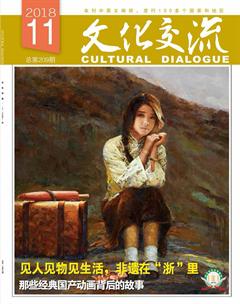懷念著名小提琴家盛中國一曲“梁祝”成絕響
孫國維
9月7日,著名小提琴家、《梁祝》的演奏者盛中國因心臟病突發搶救無效去世,享年77歲。
盛中國是中國第一批享譽世界的演奏家之一。幾十年來,他多次應邀到亞洲、歐洲、大洋洲、南美洲許多國家舉辦獨奏音樂會,并多次與國內外交響樂團和世界著名指揮、音樂家同臺演出巴赫、莫扎特、貝多芬等的名曲。澳大利亞ABC廣播公司,甚至將盛中國列入“世界最偉大的藝術家”的行列。
筆者與盛中國相知相識于40多年前,回憶起往日點滴,感慨不已。
一對琴瑟和鳴的佳偶
9月13日上午,盛中國的告別儀式在八寶山殯儀館東禮堂舉行。筆者在現場看到不少業界知名音樂家前來送行,包括著名作曲家趙季平、中國交響樂團首席指揮李心草、鋼琴家鮑蕙蕎和劉詩昆等。
追思會沒有播放哀樂,現場只播放了一首柴可夫斯基的《D大調小提琴協奏曲》,到場送別父親的盛潔說:“這是我父親盛中國在1980年應邀到澳大利亞悉尼歌劇院演出時錄下的。”追思會幾乎自始至終播放著那首纏綿悱惻、凄美動人的小提琴協奏曲《梁祝》,這是盛中國生前最愛演奏的樂曲,縱然千萬遍而不厭倦,那是他的代表作,也是他與瀨田裕子的定情曲。
在告別儀式的最后,盛中國的夫人瀨田裕子走到大師的遺體旁,將一把盛中國心愛的小提琴放到他的身上,并把他生前穿戴過的大衣和眼鏡也放到他身上。她說:“我怕他冷,會看不清楚。”然后,她又低下頭去對盛中國說:“我永遠愛你,我們下輩子再做夫妻。”這番真情話語讓在場的親友都無不動容。
筆者認識瀨田裕子是在多年前的古巴。那天,筆者與古巴朋友洽談商務,恰巧對門房間里遇見久未謀面的老朋友盛中國。他正好因為古巴鄰居養狗的事要與他商量,卻因語言不通無法溝通,見了我就像碰上了救星似的。我倆熱烈擁抱,互致問候。我幫他們解決了相互間的矛盾。盛中國邀請我到他家做客。這時,我才認識他的夫人瀨田裕子。
盛中國與瀨田裕子的愛情故事可謂是一段樂壇佳話。
1986年,第三屆國際小提琴比賽在日本舉行,盛中國作為中國代表參加并擔當評委。比賽結束后,日方希望盛中國留下來舉辦音樂會。盛中國希望日方為他找個鋼琴伴奏。一位朋友向他推薦了小他20歲的瀨田裕子。后者在初見盛中國時,剛從日本國立音樂學院畢業不久,已在音樂界小有名氣,被稱為“會用鋼琴唱歌的青年演奏家”。
經過第一次登臺合作,雙方都有了好感和信任。在日后的交往中,兩人的感情慢慢升溫。盛中國曾打了個比方,他與瀨田裕子的感情發展就像“飛機軟著陸”,是一個水到渠成的過程。而其中的奧秘就在于《梁祝》。盛中國耗費心血把梁山伯與祝英臺的愛情故事演繹成一部小提琴協奏曲。瀨田裕子為盛中國伴奏,不僅需要天賦,更需要盛中國的耐心啟發,最重要的其實是愛心。有了愛心,這曲完美的戀人曲當然會成為愛情的催化劑。
1994年,兩人正式結為夫婦。盛中國說他與瀨田裕子在生活中是情侶,在舞臺上是戰友。
自從盛中國把《梁祝》改編成小提琴和鋼琴協奏曲之后,他與瀨田裕子的家庭功課主要就是如何切磋和磨合這首愛情交響曲了。
一位出生于提琴世家的天才
追溯起來,筆者與盛中國相知相識是在40多年前。他在音樂學院的一個宿舍里接受筆者的采訪。
那小屋雖然局促,但卻整潔。他不僅做得一手好菜,而且還是能工巧匠,家里的沙發就出自他自己的手藝。那時候雖然流行自打家具,但家里自做沙發的為數不多。盡管那時候物資匱乏,然而中午時分,他還特地為我做了一盤紅燒平魚,讓我大快朵頤。我們十分投緣,大有酒逢知己千杯少的感覺。也是在那間小屋,盛中國打開話匣子,為筆者介紹了他的提琴世家——
父親盛雪是音樂學院的小提琴教授,母親朱冰是女高音歌唱家和鋼琴演奏家。全家11個孩子,有9個都拉小提琴,每每弦歌一堂,其樂融融。在南京和兩廣一帶,說起盛氏家族的演出規模和氣派,大家都會豎起拇指嘖嘖驚嘆。而這樣的成績背后,少不了苦練。一年中,盛家的孩子唯有年三十和正月初一才能休息,概無例外。但盛中國確實是好樣的,不僅琴不離手,曲不離口,而且,音準到位,一絲不茍。夏練三伏,冬練三九,不是汗流浹背,就是手生凍瘡。稍有怠慢,父親就會嚴厲指出。
嚴師手下出高徒。盛中國5歲開始隨父學琴;7歲登臺演出;9歲時武漢人民廣播電臺錄制了由他獨奏的莫扎特、貝多芬和舒伯特等大師的經典作品并向全國傳播,令無數觀眾為之傾倒。盛中國被贊為“天才琴童”。
在1956年舉辦的紀念莫扎特誕辰200周年的音樂會上,他在李德倫指揮的中央樂團管弦樂隊伴奏下,演奏了莫扎特的《A大調小提琴協奏曲》。1960年,他與劉詩昆一起赴莫斯科柴可夫斯基音樂學院留學,師從蘇聯著名小提琴大師列·柯崗。1962年,他參加在莫斯科舉辦的第三屆國際柴可夫斯基小提琴比賽,并獲得榮譽獎。回國后,他曾多次應邀到亞洲、歐洲、大洋洲和南美洲的許多國家以及中國港澳地區舉辦獨奏音樂會,足跡遍天下。
盛中國是我國音樂界一位傳奇式人物,他對作品的理解和處理有獨到之處。演奏風格既熱情奔放,又優美細膩;既富于詩情畫意,又具有浪漫幻想。1979年,世界級小提琴大師梅紐因來華訪問,在北京紅塔禮堂與盛中國同臺演出時,他贊揚盛中國是他在中國演奏巴赫小提琴協奏曲的最佳拍檔。他觀察到盛中國的左手指彈跳力快得驚人,這也是為何盛中國在演奏時能做到或如平沙落雁,或如天馬行空。
In Memory of Violinist Sheng Zhongguo
By Sun Guowei, our special reporter in Beijing
Renowned Chinese violinist Sheng Zhongguo died of a heart attack in Beijing on September 7, 2018. He was 77 years old.
The news of his death hit me hard. I first met him more than 40 years ago. I went to visit him at a dormitory building at a music school in Beijing. The apartment was small, but orderly. He was a fine cook and fine carpenter. Back then, he made his own sofa. At the end of the interview, he treated me to fish braised in soy sauce he cooked. We drank wine and chatted more. It was during that meeting that I learned about his family. He was born in 1941 to a musical family. His father Sheng Xue was a violinist and professor and his mother was a pianist and vocalist. Of the 11 children, nine played violin. He was the most famous of the familys young nine violinists. His familys violin shows were a concert phenomenon.
At age 7, he gave his first public performance, and two years later he made his first solo recording, with Wuhan People's Broadcasting Station, playing music by Mozart, Beethoven and Schubert.
In 1954, Sheng Zhongguo began studying at the Central Conservatory of Music in Beijing and, in 1960, continued his education at the Tchaikovsky Conservatory in Moscow under the guidance of the great Russian violinist Leonid Kogan. After returning to China in 1964, Sheng gave concerts as a soloist with the China National Symphony Orchestra.
I met his wife Hiroko Seta, a Japanese pianist, in Cuba many years ago. One day I went to visit a friend in Havana at his home, which was in a residential compound. It just happened that Sheng Zhongguo and his wife were living in an apartment across the corridor. When I arrived, I just saw Sheng Zhongguo talking to the neighbor about cats. As he saw me, he was surprised and overjoyed. We hugged each other. Then I interpreted for Sheng. As the problem solved through communications, Sheng invited me to his home where I first met his wife.
Sheng Zhongguo served as juror at the third international violin competition in Japan in 1986. After the competition, Sheng was invited to give solo concerts in Japan. Sheng asked the host to find a pianist for his concerts. A friend recommended Hiroko Seta, a young pianist who had just graduated from a celebrated conservatory of music. Twenty years younger than Sheng, she was a rising pianist who was able to “make the piano sing”.
The bond between the two was firmly established after the first cooperation. The link between them was Butterfly Lovers, a violin concerto composed by He Zhanhao and Chen Gang in 1959, when both were students at the Shanghai Conservatory of Music. Seta and Sheng worked together to find the best violin-piano interpretation of the concerto. The two fell in love. In 1994, they got married.
As a national-level soloist with the China National Symphony Orchestra, Sheng was among the first Chinese musicians to win honors on the international stage with a performance style that was filled with enthusiasm and poetic charm. In 1980, he held 12 concerts in six cities in Australia, making quite a stir there. These performances not only were a landmark for Sino-Australian cultural exchanges, but also marked the official entrance of Chinese violin performances onto international cultural and art stage. Sheng was listed as one of the "world's greatest artists" by the Australian Broadcasting Corporation after his performances in the country.
During his lifetime, Sheng worked with top musicians at home and abroad. In 1979, he performed with world-famous violinist Yehudi Menuhin, after which Menuhin praised Sheng as the best partner to have to play the Bach Double Violin Concerto in China.
I attended Sheng Zhongguos funeral in Beijing. His wife Hiroko Seta placed a pair of glasses and an overcoat by Shengs body. Through out of the funeral, the acoustic system played two musical pieces. One was Violin Concerto in D Major composed by Tchaikovsky. His daughter Sheng Yi said at the funeral that it was a live record of the masterpiece performed by Sheng Zhongguo at a concert in Australia in 1980. The other was Butterfly Lovers, a recording jointly made by Sheng Zhongguo and his wife Hiroko Seta.

